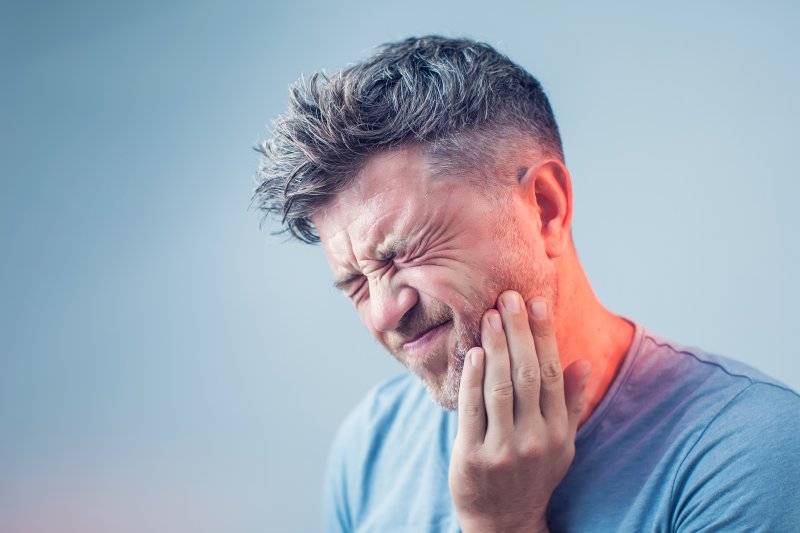
Toothaches result from infections within the teeth and have a reputation for being quite aggravating. On their own, they can be miserably painful, but many people avoid getting help out of fear of going to the dentist. While one might be tempted to say, “My teeth are pretty far from all my vital organs, so ignoring this toothache couldn’t be that bad,” nothing could be further from the truth. What might seem like a simple toothache can progress into a potentially fatal condition. Here’s more about why you should seek emergency dental care for a toothache.
It Begins with A Tooth Infection
Cavities are infections in the enamel of a tooth caused by poor oral hygiene. The bacteria in the mouth love sugar and excrete acid, so if residual sugar is not habitually and adequately cleaned from the mouth, these bacteria begin to accumulate and produce harmful acid, which eventually begins eroding the teeth.
You might not even feel the cavity, but if it is allowed to progress, it can burrow its way into the pulp of the tooth. This infection results in symptoms including:
- Throbbing pain in the tooth, jaw, ear, or neck
- Pressure sensitivity in the mouth
- Temperature sensitivity in the tooth
- Swelling of the cheek or lymph nodes in the neck
- Foul taste or bad breath
- Fever
When the Infection Spreads
Untreated tooth infections can lead to worse things than gum disease, tooth loss, and bone loss in the jaw. Once bacteria are inside the pulp, they have access to the bloodstream, allowing them to spread to other parts of the body. These secondary infections can be fatal if they reach the vital organs or cause blood poisoning.
If your tooth infection is spreading to other areas, you might feel unwell and experience headache, fatigue, and dizziness. You might also have a fever, resulting in skin flushing, chills, or sweating. You might experience swelling in the face, and it can be so severe that it makes it hard to swallow, breathe, or fully open your mouth. There might be symptoms of dehydration like confusion and darker, less frequent urine. Your heart and breathing rate can increase and you might feel nausea. At this point, you should call your doctor or head to the emergency room.
A good general rule is to go see a dentist if your toothache lasts for more than one day. By keeping up with good oral hygiene and visiting your dentist twice a year, you should be able to keep your teeth healthy and infection-free. If a toothache does strike, knowing the signs and what to do about it can save you much suffering and get you back to good health sooner.
About the Author
Dr. Deborah Bishop earned her Doctor of Dental Medicine at the University of Alabama School of Dentistry before attending an endodontic residency at the University of Alabama at Birmingham. She is a member of the American Dental Association, the American Association of Endodontists, and the International College of Dentists. Her practice provides services including nonsurgical root canals, apicoectomies, and other endodontic treatments. If you are concerned about a toothache, contact her online or dial (256) 882-5161.
